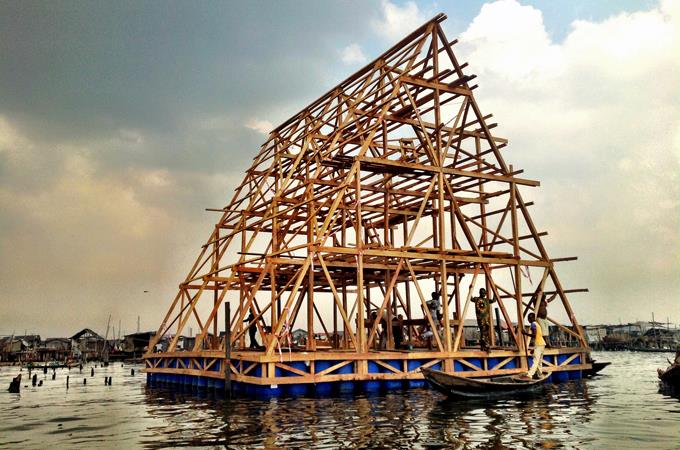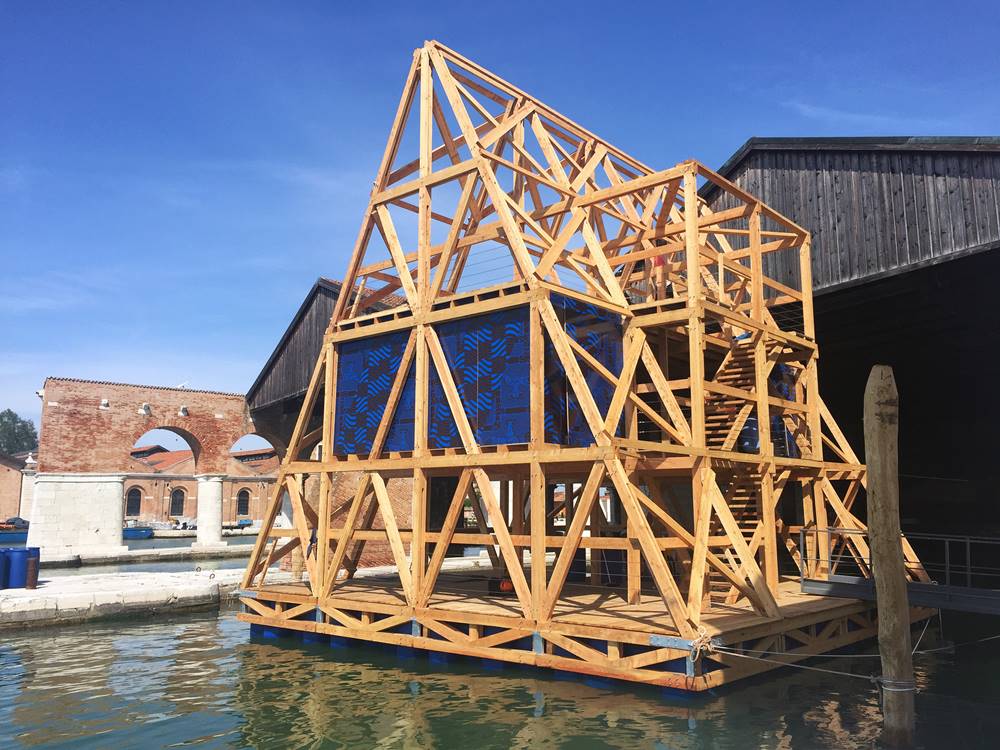Art World
Nigeria’s Floating School, Toast of Venice Architecture Biennale, Collapses in Storm
The acclaimed project was awarded a Silver Lion.

The acclaimed project was awarded a Silver Lion.

Lorena Muñoz-Alonso

There is an impressive architectural project that has recently captured viewers’ imagination and garnered critical acclaim, but it’s not Herzog & De Meuron’s new Tate Modern or Mario Botta’s new SFMOMA. Rather, it’s the Makoko Floating School in Lagos, Nigeria, designed by Kunlé Adeyemi and his firm NLÉ.
Its appeal was such that a replica of the Floating School even made it to this year’s Venice Architecture Biennale, where it was reconstructed in the water basin of the Arsenale, earning the Biennale’s Silver Lion Award.
Alas, the original school, built in a slum that’s prone to flooding on the waterfront of the Makoko lagoon, was hit by a rainstorm on June 7 and collapsed.

Replica of Makoko School in Venice. Courtesy of Karen Wong.
Described as “beacon of hope” by the Guardian, the wood and bamboo structure—which remained afloat thanks to 250 plastic barrels—had two main functions: as a school for local children and as a meeting point for the community.
Noah Shemede, the director of a local school that sent students to classes on the Floating School before it collapsed, told the Guardian that the accident was somewhat expected and that he had to relocate students to another school after local parents expressed growing concerns over the safety of the structure.
Despite the school’s international popularity, local residents had a number of growing concerns over it, including frustration at the time it took from its completion in 2013 to its opening in October 2015. Another recurrent complaint had to do with its limited capacity, hosting just 60 students.

People travel to school by canoe on June 9, 2016 in Lagos, following the collapse of the Floating School. Photo Pius Utomi Ekpei/AFP/Getty Images.
Meanwhile, Adeyemi, the architect behind it, told the Guardian that the structure “collapsed due to wear, tear, and damages in the last months.”
“Being a first prototype, the structure was expected to have a limited lifespan with some maintenance. It was no longer in use, shored, and discussions were incidentally in progress by the community to bring it down this week and salvage some of its reusable equipment and materials,” he added.
Ademeyi has plans to redevelop the Floating School elsewhere, with a bigger capacity of 200 students. But it seems this utopian project has left a bitter taste in the mouths of local residents.
“No parent will send their child [to the new Floating School], given what happened,” Shemede told the Guardian. “Imagine if I had kept trying to convince the parents that the school is fine and left the students there.”